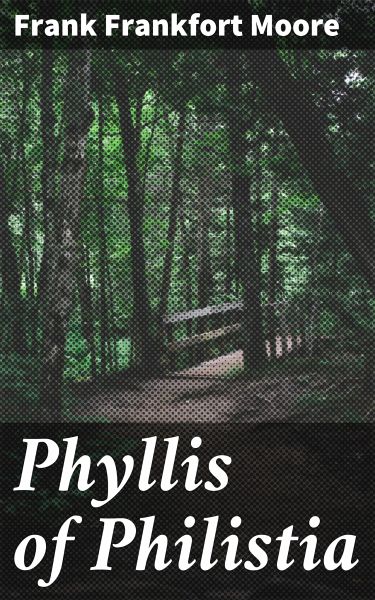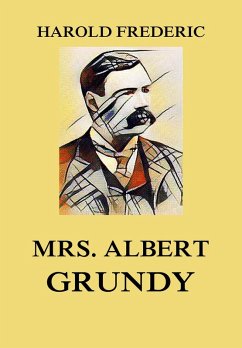
Phyllis of Philistia (eBook, ePUB)
Love, Loyalty, and Society in a Changing World

PAYBACK Punkte
0 °P sammeln!
In "Phyllis of Philistia," Frank Frankfort Moore crafts a captivating narrative that intertwines themes of love, ambition, and the complexities of societal expectations in a richly textured historical milieu. Set against the backdrop of ancient Philistia, the novel employs a vivid literary style characterized by intricate character development and lyrical prose. Through the lens of the titular character, Phyllis, Moore delves into the struggles of a woman navigating a patriarchal society, gracefully blending dramatic tension with an undercurrent of humor and satire that reflects the broader so...
In "Phyllis of Philistia," Frank Frankfort Moore crafts a captivating narrative that intertwines themes of love, ambition, and the complexities of societal expectations in a richly textured historical milieu. Set against the backdrop of ancient Philistia, the novel employs a vivid literary style characterized by intricate character development and lyrical prose. Through the lens of the titular character, Phyllis, Moore delves into the struggles of a woman navigating a patriarchal society, gracefully blending dramatic tension with an undercurrent of humor and satire that reflects the broader socio-political landscape of the time. Frank Frankfort Moore was a prolific English author and playwright whose diverse literary career spanned several genres, including historical novels, poetry, and journalism. His keen interest in historical contexts, combined with a deep understanding of human emotions, likely influenced his portrayal of Phyllis. Moore's exposure to Victorian cultural norms and his own experiences with social critique are evident in this work, offering readers a profound exploration of character motivations amid complex societal structures. Readers seeking an engaging blend of history and keen psychological insight will find "Phyllis of Philistia" a thought-provoking addition to their literary repertoire. Moore'Äôs mastery of storytelling invites readers to reflect on timeless themes while immersing themselves in an evocative world, making it both a compelling read and a significant contribution to the canon of historical fiction.
Dieser Download kann aus rechtlichen Gründen nur mit Rechnungsadresse in A, B, BG, CY, CZ, D, DK, EW, E, FIN, F, GR, H, IRL, I, LT, L, LR, M, NL, PL, P, R, S, SLO, SK ausgeliefert werden.












